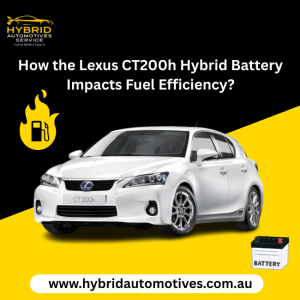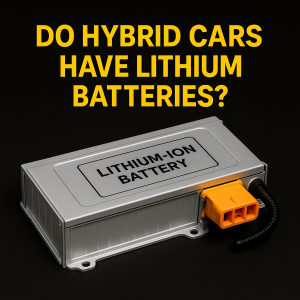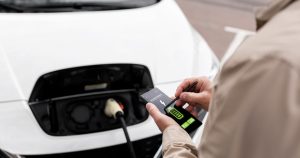
Is a Hybrid Car Worth It in Australia? Pros, Cons & Costs Explained
With rising fuel prices, increased environmental awareness, and a growing range of vehicle choices, many Australians are asking the same question:
“Is it worth buying a hybrid car?”

The short answer is yes, a hybrid car can be a smart investment for many Australians—especially urban drivers. However, the decision depends on factors like your budget, driving habits, location, and long-term expectations.
In this guide, we’ll explore the pros, cons, and real costs of hybrid vehicle ownership in Australia to help you decide if it’s the right move for you.
What Is a Hybrid Car and How Does It Work?
A hybrid vehicle uses a combination of a petrol engine and an electric motor to power the vehicle. This system enables the car to:
- Use the electric motor during low-speed or stop-start driving
- Switch to the petrol engine at higher speeds or under heavy load
- Charge its battery using regenerative braking and the petrol engine
🔧 Types of Hybrid Vehicles:
- Full Hybrid (HEV) – e.g., Toyota Prius, Camry Hybrid
- Plug-in Hybrid (PHEV) – e.g., Mitsubishi Outlander PHEV
- Mild Hybrid – offers electric assist but not full EV driving
Pros of Buying a Hybrid Car in Australia
1. Fuel Savings
Hybrids can reduce your fuel consumption by 20–40% compared to traditional petrol vehicles, especially in stop-start traffic.
Example: Toyota Corolla Petrol – 6.0 L/100km vs Corolla Hybrid – 4.2 L/100km
2. Lower Emissions
Hybrid cars emit fewer greenhouse gases, making them a better choice for urban drivers and eco-conscious consumers.
3. Government Incentives
While most EV rebates apply to full electrics, some Australian states offer toll discounts or green vehicle registration benefits for hybrids and PHEVs.
4. Higher Resale Value
Due to rising fuel prices and demand for fuel-efficient vehicles, hybrid models generally retain their value better in the used market.
5. Smoother, Quieter Drive
The transition between electric and petrol power is seamless, providing a calm and smooth ride—ideal for city conditions.
Cons of Buying a Hybrid Car in Australia
1. Higher Upfront Cost
Hybrids usually cost $2,000–$4,000 more than their petrol counterparts.
2. Battery Replacement Costs
Although rare within warranty periods, hybrid battery replacement can cost $2,000–$5,000 if needed after 8–10 years.
3. Not Ideal for Towing or Off-Roading
Hybrids typically have lower torque and aren’t designed for heavy-duty use, making them less suited for rural or rugged Australian terrain.
4. Complex Technology
While generally reliable, repairs and servicing may cost more if something goes wrong outside warranty.
Cost Breakdown: Hybrid vs Petrol in Australia
| Category | Petrol Car | Hybrid Car | EV |
| Initial Purchase Price | Lower | Medium | Higher |
| Fuel Cost (10,000km) | ~$1,800 | ~$1,200 | ~$400 |
| Maintenance Cost | Moderate | Moderate | Low |
| Battery Replacement | N/A | $2K–$5K | $7K+ |
| Resale Value | Average | Higher | Unstable |
Verdict: Over 5–7 years, hybrids often break even or save more depending on driving patterns.
Best Hybrid Cars in Australia
- Toyota Prius – Pioneer in hybrid tech, excellent fuel economy
- Toyota Camry Hybrid – Midsize comfort and reliability
- Lexus RX450h / NX300h – Luxury and performance in a hybrid SUV
- Honda Accord Hybrid – Premium interior and strong efficiency
- Hyundai Ioniq Hybrid – Affordable and feature-packed
- Mitsubishi Outlander PHEV – Ideal for families needing electric + petrol flexibility
Hybrid vs Petrol: Which Is Right for You?
Go for a Hybrid If:
- You drive frequently in city traffic or do regular commuting
- You plan to keep the car for 5+ years
- You’re focused on reducing emissions and fuel costs
- You value resale value and smoother driving experience
Stick to Petrol If:
- You mostly drive long highway distances in rural areas
- You’re on a tight upfront budget
- You require towing capacity or off-road use
- You plan to sell within 2–3 years
What to Expect as a Hybrid Owner in Australia
- Warranty: Hybrid batteries often come with 8–10 years of warranty
- Servicing: Similar to petrol cars; major service every 12 months
- Fuel type: Regular unleaded petrol is usually sufficient
Insurance: Slightly higher premiums due to vehicle value




